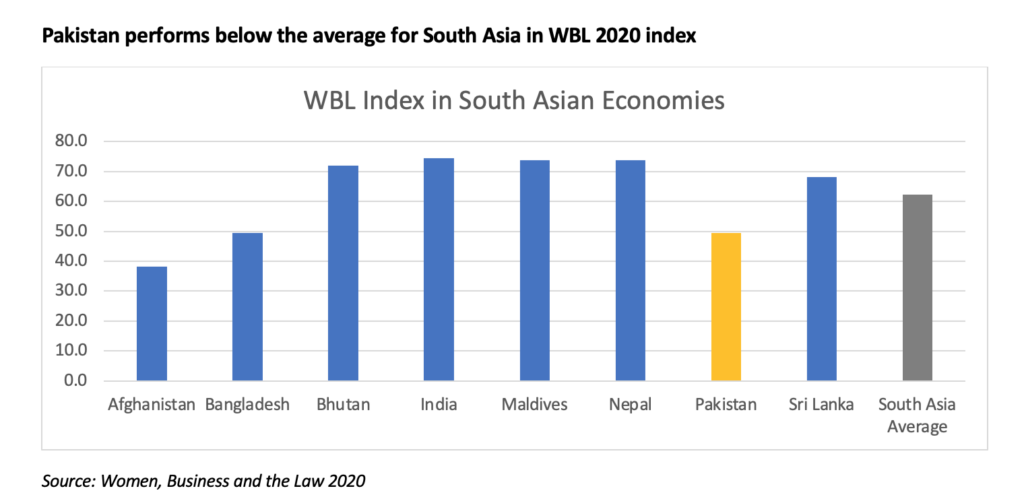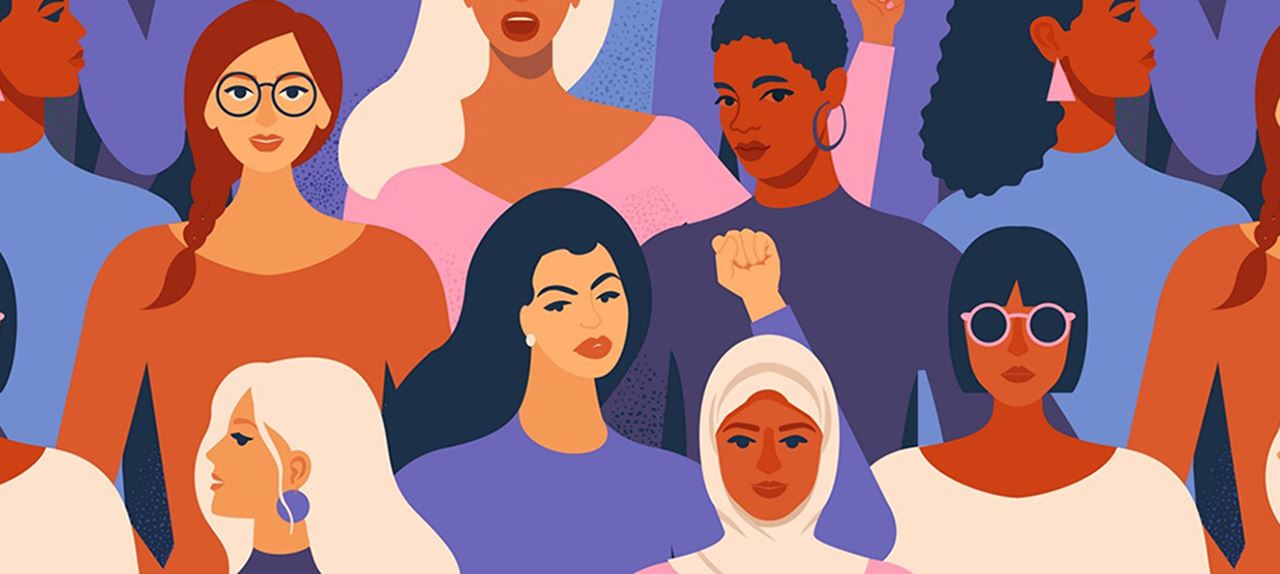By Iva Hamel, Gharam Alkastalani Dexter and Cansu Birce Gokalp
In Pakistan, there is real momentum for reforms to advance gender equality, even amid a pandemic and related economic challenges.
Driven by a recent wave of reforms designed to empower women, Pakistan passed an amendment to the Companies Act in the summer of 2020 to equalize the procedure of opening a business between women and men. The amendments lifted the requirement for women entrepreneurs to provide the name of their father or husband during the company incorporation process, and in particular in the submission of the company memorandum and articles of association.
The reforms are a result of a partnership between the Government of Pakistan and the World Bank Group’s Women, Business and the Law (WBL) Advisory Program, supported by the Women Entrepreneurs Finance Initiative (We-Fi) and the WBG’s Doing Business Pakistan Project.
Pakistan, like many other countries in South Asia, must overcome challenges in addressing women’s economic advancement, especially regarding women’s entrepreneurship. As a result of a combination of regulatory gaps and cultural norms that constrain women’s access to good jobs or business start-up opportunities, women make up only 22 percent of the country’s labor force. In Pakistan’s private sector, only 10 percent of the workers are women. [1] This wide employment disparity is far greater than in other economies in South Asia.
According to the Women, Business and the Law 2020 index, women in Pakistan still face legislative barriers, such as industry restrictions and no mandate for equal pay for work of equal value. Pakistan’s score of 49.4 is below the average for the eight countries of the South Asia Region (62.3), as shown in Figure 1, and below the global average (75.2) and the average for lower-middle income economies (68.8), as shown in Table 1.

In 2019, when the opportunity to act on concrete reform recommendations to improve gender equality informed by the results in the Women, Business and the Law report, Pakistan’s authorities moved fast.
First among a dozen nations
In 2020, Pakistan was first to step forward among a dozen nations to express its interest in implementing the reform memoranda prepared by the WBL Advisory team. With We-Fi support, the WBL advisory team has produced similar memoranda across WB We-Fi portfolio countries, including Bangladesh, Côte d’Ivoire, Djibouti, the Arab Republic of Egypt, Jordan, Lebanon, Mozambique, Nigeria, Senegal, Tunisia, and Zambia. For each country, the memoranda highlight the legislative gaps and legal restrictions on women’s ability to engage in income-generating activities, as well as lack of legal protections for women at the workplace and within the household. The memoranda propose legal reforms and recommend adoption of relevant good practices and international standards.
Even amid travel and work restrictions in response to the COVID-19 pandemic, Pakistan continued to pursue the reform agenda as one of its priority areas and received implementation support from the WBL Advisory team. The Pakistan government’s enthusiasm and engagement in understanding and addressing the restrictions captured by the WBL analysis was critical to the successful enactment of the Companies Act amendment in June 2020.
Other key recommendations captured by the WBL index and discussed with the government are proposals, among others, to equalize the procedure for men and women to obtain passports, mandate non-discrimination based on gender in employment in the private sector, protect pregnant women from dismissal, and introduce paternity and parental leave.
COVID-19 accelerating the urgency of reform
These reforms come at a critical time. In the first half of 2020, most economic activity froze across the country with the growing COVID-19 caseload along with government efforts to halt the spread of virus. Trade, communications, and storage services—among the main business sub-sectors in Pakistan—closed as a result of the pandemic. The sudden drop of domestic and global demand curtailed industrial activity across the country. [2] Legal reforms advocated by WBL, combined with other measures, could have a critical effect in increasing economic opportunities for women in Pakistan, where starting a business is an economic necessity for women. WBL reform advisory support is ongoing in several We-Fi countries, leveraging emergency and recovery efforts for gender reforms.
History tells us successful economic recovery, like in the period after World War II, will require women’s active participation. Governments have the power to level the playing field by increasing access to opportunity for women, and thus supporting a faster economic recovery.
[1] ILO. https://www.ilo.org/wcmsp5/groups/public/—ed_emp/—emp_ent/documents/publication/wcms_094011.pdf
[2] World Bank Group. Pakistan Country Profile

